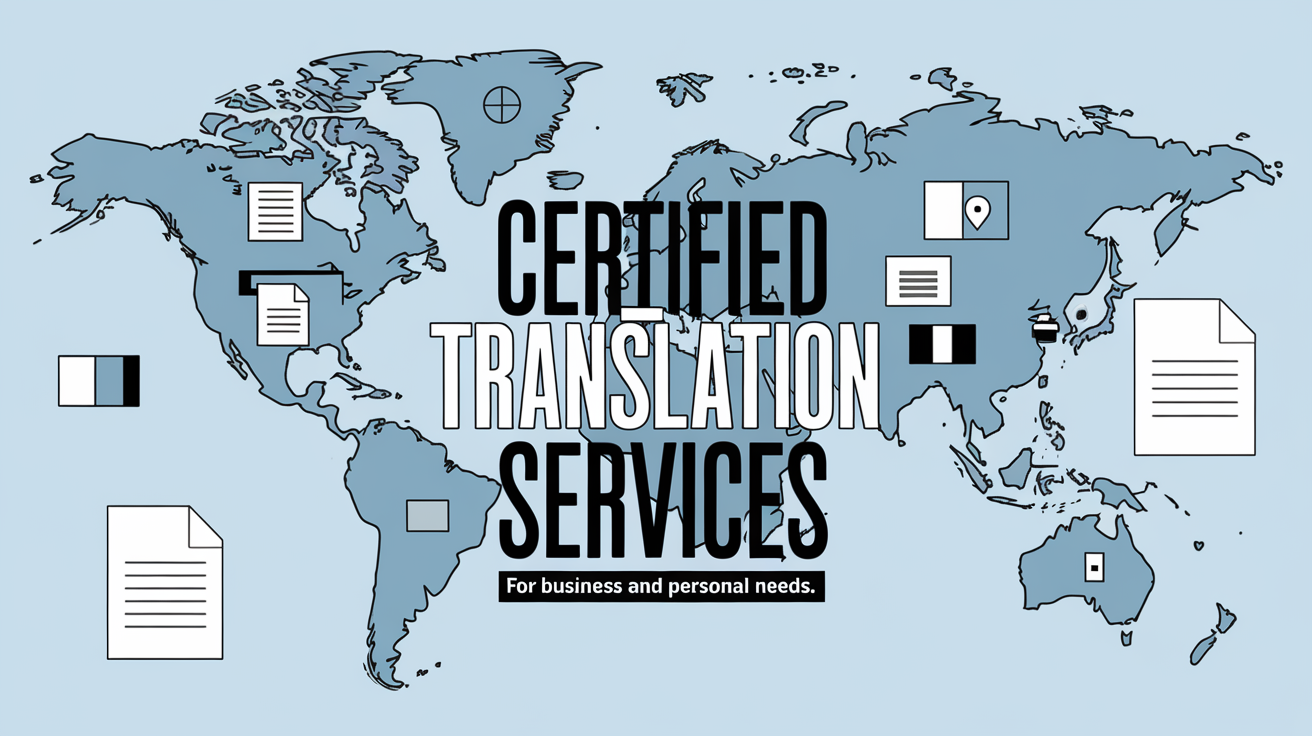What Are Certified Translation Services?
Definition of Certified Translation
A certified translation is an official translation of a document that includes a signed statement by the translator or translation agency verifying its accuracy and completeness. This certification is often required for legal, governmental, and official purposes to ensure the translated content is trustworthy.
Importance of Certification in Translation
Certified translations are crucial for documents that require legal validity, such as contracts, immigration paperwork, or medical records. Without certification, translated documents may not be accepted by authorities, potentially leading to delays or legal consequences.
Why Businesses Need Certified Translation Services
Legal and Regulatory Compliance
Businesses operating internationally often need certified translations for legal documents such as contracts, agreements, and compliance reports. These translations ensure adherence to local laws and regulations, protecting the company from legal issues.
Business Expansion into Global Markets
To succeed in global markets, businesses must communicate effectively with clients, partners, and authorities. Certified translations of marketing materials, product manuals, and business proposals help build trust and credibility with international stakeholders.
Accuracy and Reliability for Documentation
Inaccurate translations can damage a business's reputation and lead to costly mistakes. Certified translation services guarantee the highest level of precision, ensuring that essential business documents are error-free and reliable.
Key Industries That Rely on Certified Translation Services
Legal Sector
The legal industry requires certified translations for court documents, contracts, affidavits, and patents. Accuracy is paramount, as even minor errors can alter the meaning of critical legal content.
Healthcare Industry
Hospitals and medical professionals often require certified translations for medical reports, prescriptions, and patient records, especially when treating international patients or dealing with insurance claims.
Financial Services
Banks, insurance companies, and investment firms need certified translations for financial statements, audit reports, and tax documents to ensure regulatory compliance in global operations.
Education and Academia
Universities and educational institutions rely on certified translations for transcripts, diplomas, and application materials, especially for international students seeking admissions abroad.
Immigration Services
Immigration authorities require certified translations for personal documents such as birth certificates, marriage certificates, and visas. These translations must meet specific standards to be accepted.
Personal Needs for Certified Translation Services
Immigration Applications and Visas
Individuals applying for visas or immigration programs often need certified translations of documents like passports, birth certificates, and background checks. These documents are critical for meeting legal requirements.
Academic Transcripts and Diplomas
Students applying to foreign universities or seeking employment abroad may need their academic credentials translated and certified to validate their qualifications.
Personal Legal Documents
Certified translations are essential for personal documents like marriage certificates, wills, and adoption papers. These translations ensure the documents’ legal validity in different jurisdictions.
Difference Between Certified and Non-Certified Translation
Certification Process
Certified translations include a signed declaration by the translator affirming the accuracy of the work. Non-certified translations lack this official verification and are unsuitable for legal or formal purposes.
Quality Standards in Translation
Certified translations adhere to strict quality standards, ensuring every word is accurately translated. Non-certified translations may prioritize speed over accuracy, which can compromise the result.
When to Use Certified vs. Non-Certified Translations
- Use certified translations for legal, official, and immigration purposes.
- Use non-certified translations for informal content like emails or personal communication.
The Role of Certified Translators
Qualifications and Skills Required
Certified translators are professionals with expertise in language pairs and subject matter. They often undergo specialized training and certification processes to meet industry standards.
Adherence to Professional Standards
Certified translators follow strict guidelines and codes of ethics to ensure the accuracy, confidentiality, and quality of translations.
Importance of Translator Accuracy
Certified translators meticulously review and proofread translations to ensure error-free documents, as any inaccuracies can lead to legal or personal complications.

